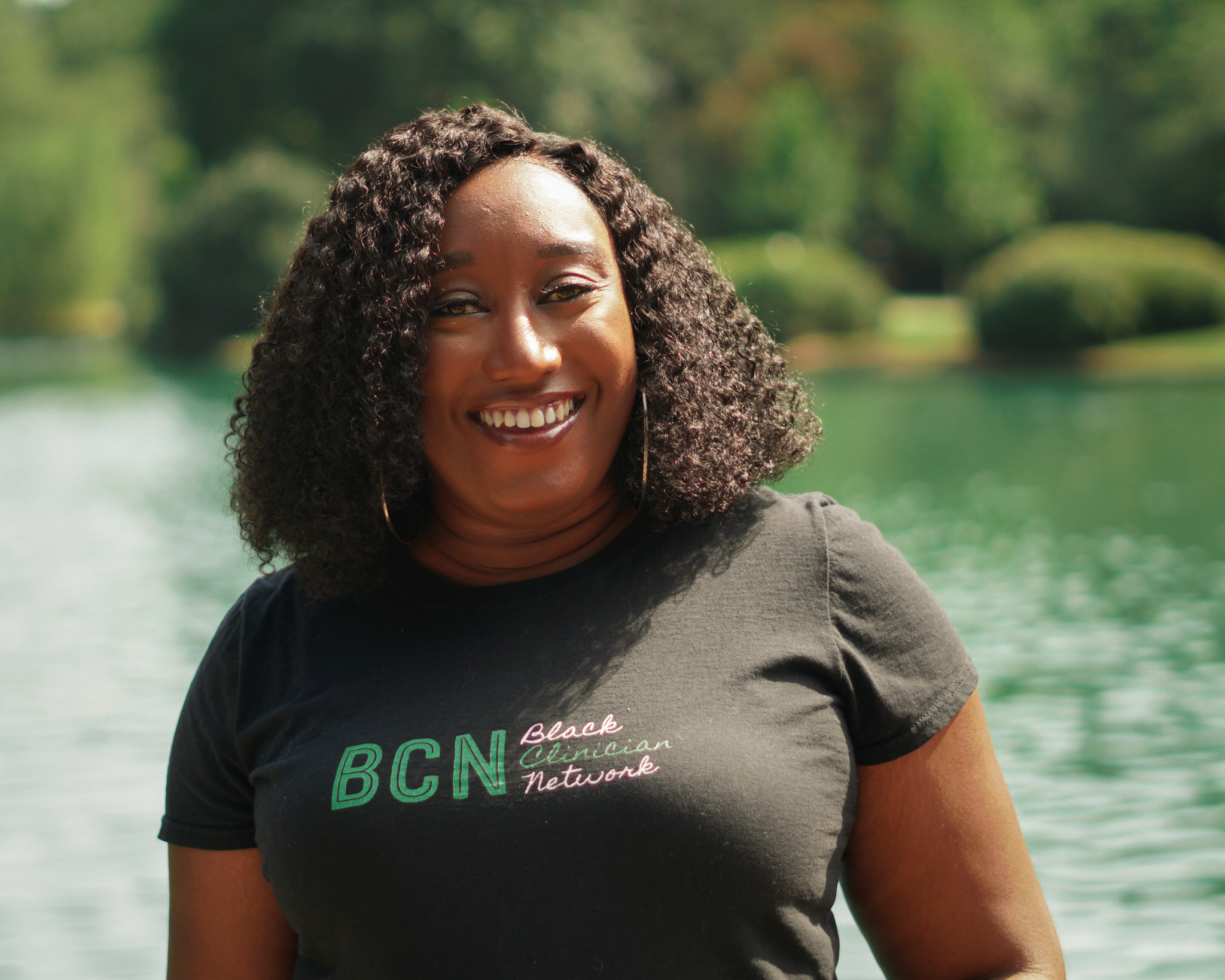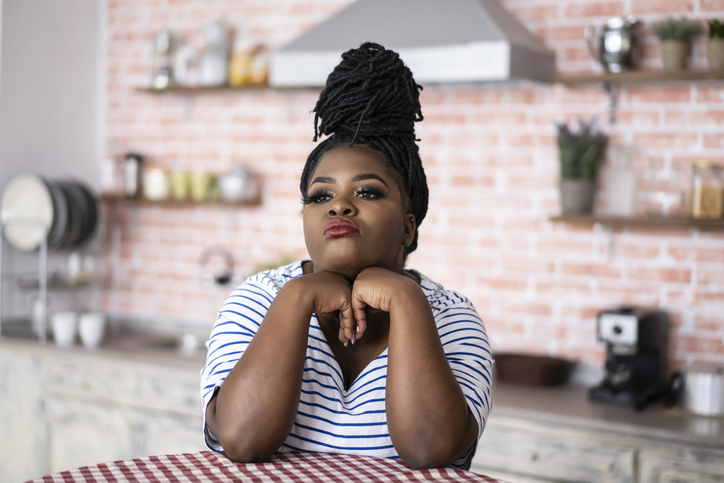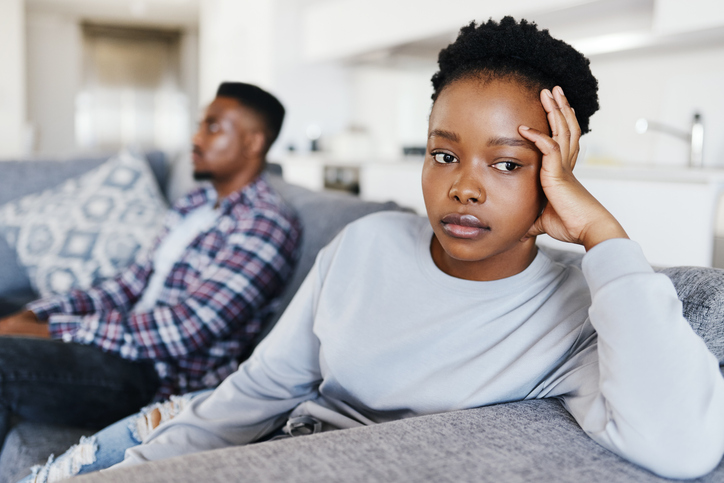Signs You’ve Been Living With Your Guard Up - Page 5
Share the post
Share this link via
Or copy link

Source: skynesher / Getty
There’s a big difference between having boundaries and having your guard up. One takes a constant series of adjustments and plenty of supervision; the other is a permanent, unwavering stance.
When your guard is up, you don’t adjust vulnerability levels to each given situation. You don’t assess the circumstances and decide when it’s safe to let people in. You just live with the understanding that it is never safe. The guard is always up. It’s a shield that protects you from the bad stuff. Unfortunately, it also keeps out the good stuff.
You know that nothing good comes without sacrifice. Career achievements don’t come without hard work. Weight loss doesn’t come without saying no to temptation. And emotional connection doesn’t come without putting yourself through some emotional hardship. But that last thing – that can be hard for people to accept. Emotional hardship, some would say, is worse than any tangible loss. You lose a job, you find another. You put on weight, you diet and exercise. But when your emotions get hurt, the solution isn’t as simple, which is why some just decide to leave that guard up, all of the time. We spoke with Karena Curry, the founder of Black Clinician Network, about signs one lives with their guard up.

Source: curry has full rights to these images / na
You could be closed off without knowing it
Love MadameNoire? Get more! Join the MadameNoire Newsletter
We care about your data. See our privacy policy.
“We all like to think that we’re open in most aspects. We find comfort in the fact that we know ourselves to a degree, but the truth is, we may not actually be as open as we think we are,” says Curry. “Having your guard up can stem from many different places, but most times it can be traced back to an unpleasant past experience or even a trauma.”

Source: Vladimir Vladimirov / Getty
Your guard can be a learned behavior
Research has found that there is a link between suffering childhood neglect and living with a certain guard up. Adults who struggled to receive the attention they needed as children may have learned from a young age that they’d need to solely depend on themselves. As adults, that can lead to a fear of having any sort of dependency on others, which manifests itself as an emotional barrier.

Source: PeopleImages / Getty
Assuming bad intentions
We asked Curry what are some indicators one lives with their guard up. She said, “A couple of signs that you are living with your guard up are: Questioning the intentions behind small gestures and acts, even when they are overtly positive; and being resistant to making new connections and skeptical of new relationships.”

Source: Anna Frank / Getty
Anything you say can be used against you
Rather than seeing sharing personal experiences as an integral part of forming bonds, those with their guard up see it as a way of creating dangerous vulnerability. Curry says, “Being guarded can lead to communication issues and just general dissatisfaction in relationships. People with their guards up will likely not be as open with sharing parts of themselves or personal information, because they don’t want this to be weaponized against them in the future.”

Source: Anna Frank / Getty
People are mostly good
When it comes to withholding personal information for fear someone may use it against you, Curry says, “While that is understandable, the assumption here is that everyone around you will be intentionally malicious, which is likely not true.” By the way, it’s been proven, through research, that people mostly won’t screw you over. One study examined this very matter, and found that, in most cases, people will do something for the good of others, even if it is at a direct cost to themselves. In other words, it turns out that people are mostly good.

Source: PeopleImages / Getty
Avoiding the past rather than enjoying the present
“People that operate from this space are often trying to prevent a familiar hurt that has led them to being guarded in the first place,” explains Curry. “Ultimately, we end up losing out on valuable connections due to our inability to be vulnerable.”

Source: martin-dm / Getty
Being vulnerable is a gamble, but worth it
“Operating from a place of hurt sometimes removes our trust in our own discernment,” says Curry. “The best thing for people to understand when it comes to trust and vulnerability is that it is a choice. Choosing to be vulnerable can open up the doors to so much love, kindness, and opportunity, but it also opens the door for us to be hurt and we have no real way to guarantee that someone won’t hurt us.”

Source: BraunS / Getty
Let go of control – you never had it anyway
“This is the entire reason that people become guarded; it’s a way for them to constantly protect themselves,” says Curry. “I challenge people that live in a guarded space to open up that door anyway. When we face the reality that we can’t control how other people decide to treat us, we learn that trying to protect ourselves from the possibility of being hurt is also ‘protecting’ us from the possibility of true joy.”

Source: LaylaBird / Getty
You might get hurt, but you’ll be fine
Curry says the secret to getting comfortable letting your guard down isn’t getting some guarantee that everything will go your way – it’s knowing that, even if it doesn’t, you’ll get through it. “The best way to let your guard down is to trust that you have the strength and ability to get through whatever experience it may lead to. Trusting yourself is the first step to trusting others.”

Source: Westend61 / Getty
Getting hurt can even benefit you
As for the times putting yourself out there does get you emotionally hurt, there’s good news about that, too: research has found that people who have faced adversity and overcome it experience better mental health than those who’ve experienced little to no adversity. So you’re actually doing yourself a disservice by avoiding emotional pain at all costs.
-

She Tried It: Inahsi Naturals Aloe Hibiscus Leave-In Conditioner & Detangler
-

Meet Dominique Fils-Aimé, The Haitian-Canadian Star Redefining Jazz For A New Generation: ‘This is My Vision' [Exclusive]
-

Cooking With Purpose — How Brittney Williams Honors Her Caribbean Roots Through Food
-

8 Famous Lesbian Women Who Were Married To Men



